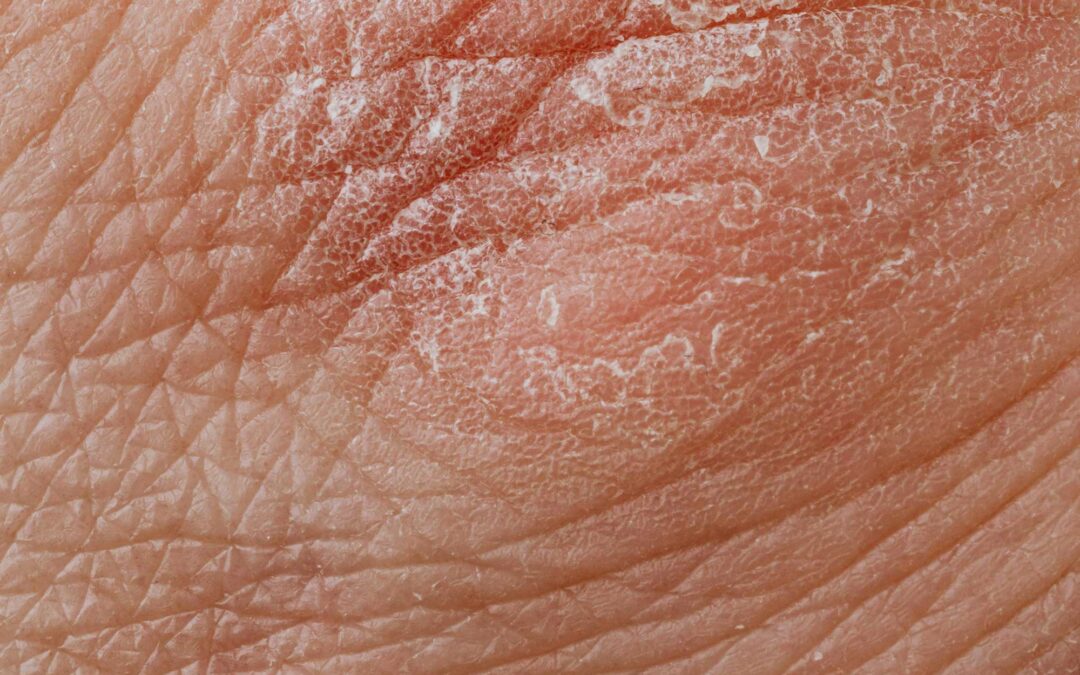The subject of alcohol is a tricky one to navigate in my clinical practice. It’s pretty socially acceptable not to eat gluten these days. Well more so than it used to be, anyway. But giving up alcohol can, for some, be a very emotional subject. I am sometimes even told that it is off limits as a topic of discussion!
Here in the UK and also in Australia where I grew up, there is a strong drinking culture! Alcohol is associated with pleasure, with decadence, with relaxation, with ‘me-time’, with bonding with friends, family and your romantic other. It is considered ‘normal’ and many people literally cannot imagine social situations without a little libation.
And I am not speaking about alcohol addiction or dependance here. That’s another subject.
People do give up alcohol in January for a month. Or do ‘Dry July’ sometimes. There’s the odd article in Grazia magazine about alcohol ageing you or the insidious nature of the drinking culture in advertising or social media.
But what about the role that alcohol plays in the life of someone with an autoimmune disease?
One of the things that I do in my clinical practice, is that I think about ALL of the variables in someone’s life and body, that may be having an effect on their health and their immune system. That includes sleep, food, relationships, stress, physical activity, infections and toxins. Well alcohol falls into lots of those categories! It’s a sort of a food, it’s used for relaxation or because of stress and it’s also a toxin. So it definitely needs to be part of the conversation.
Do I think drinking alcohol is wise if you have an autoimmune disease? Do I think it should be completely abstained? Of course, it’s not that black and white.
Alcohol has a complicated influence on your immune system, and many of the mechanisms haven’t been studied in full yet.
A lot of the people I work with already report that they have a very low tolerance to alcohol, with bad hangovers the following day and a period of up to a week or two of feeling tired or out of sorts. And this can be from what is considered a fairly small amount of alcohol. Just a single glass or two.
Alcohol intolerance can take its toll on you physically, and drinking alcohol can cause a setback in your recovery. The best thing you can do is learn about the relationship between autoimmune disease and alcohol consumption and make an educated decision for yourself.
How Alcohol Affects Your Body
Alcohol can provoke you into feeling:
- Carefree
- Less inhibited
- Warm
- Buzzed
- Relaxed
- Lightheaded
- Confident
Alcohol creates such a pleasant feeling in your body because it is a form of toxin – it slows down your responses and senses. Even with a healthy digestive system, you are not able to process large amounts of alcohol easily. If you are immunocompromised or struggling with autoimmunity, it’s not surprising that one or two drinks can have a huge effect on your health.
Alcohol’s Journey Through Your Digestive System
When you drink an alcoholic beverage it hits your mouth and throat first. Alcohol is a powerful disinfectant and can seriously alter the microbiome in your mouth. The change affects the balance between good and bad bacteria, and weakens the epithelial barrier between the bad bacteria and your bloodstream, causing leaky mouth.
When the drink hits your stomach, it provokes the enzymes there into attacking the stomach lining and surrounding muscles, causing heartburn.
Once the alcohol hits your gut, it begins to kill off sections of your gut microbiome – the colony of bacteria that, when healthy, aids your digestion, and breaks down harmful substances. Alcohol affects the intestinal mucus layer that exists to prevent your gut microbiome from spilling through your gut wall.
Alcohol actually acts on the integrity of your gut and interrupts communication between your microbiome and the immune system of your intestine. Dysbiosis, the disruption of your microbiome homeostasis, is associated with:
- Irritable bowel syndrome (IBS)
- Diabetes – both Type One and Type Two
- Coeliac disease
- Inflammatory bowel disease (IBD)
- Food allergies.
- Autoimmune disease in general
- Chronic fatigue
- Eczema and atopy
Just one session of drinking can result in a compromised epithelial barrier in your gut. Dysbiosis may contribute to intestinal hyperpermeability, or leaky gut.
Alcohol and Inflammation
Alcohol causes inflammation in the gut. Neutrophils are a type of immune cell that are localised to the area of the body they protect. Your gut neutrophils, under normal conditions, make sure bacteria doesn’t cross through past the epithelial barrier of your gut, but studies have found that the inflammatory state alcohol creates actually allows neutrophils to begin attacking healthy or damaged tissue in various organs – including the gut. Alcohol also induces the normally immunosuppressive T cells in your gut to release cytokines: little signallers that generate an immune response.
Basically, alcohol is a partier through and through. It comes busting up in the gut ready to paint the town red, throwing off delicate processes in the process. Everyone goes along for the ride because alcohol seems like a good idea at the time. But much like your hangover, your digestive tract is left cleaning up the mess and trying to pull itself together after the party’s over.
When you drink alcohol, your pancreas works hard to release digestive enzymes into your gut in order to oxidize the alcohol and to break it down. However, because these enzymes are also used to aid digestion of food, when the enzymes are busy neutralising alcohol it interferes with your digestive systems ability to take up essential nutrients and proteins.
How Alcohol Affects Your Immune System
You’ve probably noticed you become sick more easily after drinking more during holidays or even after a wild night out. This is because…
Alcohol affects your immune system on a cellular level often exerting an influence on the number, function, and rate of survival of your immune system cells. So drinking can’t be entered lightly: just one occurrence of binge drinking (defined as just 2 glasses of wine, or more) can have a huge effect on the innate immune system often causing inflammation within the first 20 minutes. But it doesn’t end there: an anti-inflammatory state follows afterwards for 2 to 5 hours. This means you are susceptible to infection and not able to properly defend yourself.
Alcohol can often interfere with the systems that normally keep your body’s innate immune response in check, preventing excessive inflammatory reactions. Alcohol can also increase cytokine levels in your bloodstream directly, by putting your liver on high alert against inflammation – but also indirectly, by increasing the amount of bacteria in the bloodstream through leaky gut.
Alcohol and the Immune System of Your Brain
An important part of your innate immune response is the neuroimmune signalling in the brain – which lasts for a long time after the threat has gone. The neuroimmune signalling can be activated by drinking alcohol, and one study found that, after the episode of drinking alcohol, the immune response in the blood and liver cleared up quickly, but the neuroimmune reaction was more long-lasting.
Neuroimmune signalling can result in:
- Oxidative stress in your brain.
- Further inflammation in the brain, caused by microglia signalling your immune system with cytokines.
- Activation of brain reward pathways, causing further alcohol cravings (and further inflammation if you drink more).
But the effects of alcohol on the brain don’t end in the brain:
The increased cytokine production also affects the main stress response system – known as the hypothalamic-pituitary-adrenal (HPA) axis.
Normally, the HPA axis is activated by an external stressful situation. The hypothalamus releases corticotropin-releasing hormone (CRH), inducing the pituitary gland to release adrenocorticotropic hormone. The hormone instructs your adrenal glands to stimulate the release of stress hormones, including cortisol, into your bloodstream. The stress hormones are responsible for coordinating your body’s response to the stressful situation, often creating the fight-or-flight scenario.
On alcohol, the effect on the brain and autoimmune system is not one way. In fact, it becomes a feedback loop. Proinflammatory cytokines can progress from the bloodstream past the blood-brain barrier, causing the inflammatory cycle to continue. In fact, after a session of binge drinking, these pro-inflammatory cytokine cells hang about in your brain for at least a week.
On and on these processes go, creating a steady yet accelerating downward spiral.
Autoimmunity and Alcohol
Leaky Gut and Leaky Mouth
As described above, drinking alcohol can cause both leaky gut syndrome and leaky mouth, which can trigger autoimmunity, as the unwanted bacteria and particles that enter your bloodstream keep your immune system on high alert.
If you have an autoimmune disease, experiencing leaky gut after drinking alcohol can provoke a flare up of autoimmune symptoms. While red wine does contain polyphenols, which encourage good bacterial growth in your gut, ultimately the good of that does not outweigh the bad effects of the alcohol.
Stress response (HPA axis)
The flood of stress hormones triggered by alcohol in the brain can have a range of different and unexpected reactions if you have an autoimmune disease. Continued exposure to cortisol, normally an anti-inflammatory, can desensitise your body’s tissues to the hormone.
In other words, the more cortisol in your bloodstream long-term, the less anti-inflammatory action is taken by your immune system. The immunosuppression results in not enough action being taken by your immune system – or your immune system overcompensating, and beginning to attack healthy tissues. Cortisol imbalance can lead to autoimmunity, or provoke another flare up. Autoimmunity and alcohol can feed off each other.
Alcohol Intolerance
Many patients I see with autoimmune diseases struggle with alcohol intolerance. If you have alcohol intolerance, your body struggles to metabolise alcohol as quickly or as thoroughly as a healthy body. Alcohol intolerance occurs frequently in tandem with chronic fatigue syndrome (CFS). The syndrome is connected with poor mitochondrial function.
Mitochondria in your cells take glucose or lipids and convert them into energy that powers your cells. When you struggle with an autoimmune disease such as CFS, mitochondria do not function to their full potential, and so you have less adenosine triphosphate (ATP) energy to fuel the thorough metabolism of the alcohol. The nutritional deficiencies caused by the alcohol’s effect in the gut may also reduce your liver’s ability to detoxify the alcohol.
Fatigue is the most common complaint in those with an autoimmune disease. And it’s often fatigue and brain-fog, also associated with mitochondrial dysfunction, that are the longest lasting symptoms following alcohol consumption in those with autoimmunity or poor alcohol tolerance.
Alcoholic Drinks Contain More Than Just Alcohol
Many premixed and presweetened alcoholic drinks contain high amounts of sugar. Sugar and autoimmune disease do not go well together, because sugar is inflammatory, and can trigger an increase of insulin in your bloodstream. But clear spirits such as gin, which are less likely to contain sugars, are more likely to lower your blood sugar levels, provoking the release of adrenaline – a stress hormone, which is bad news as stress hormones are highly associated with immune system dysregulation and often involved as a trigger or a perpetuator in those with autoimmunity.
Histamine is another component of alcoholic drinks that can cause people with autoimmune disease problems. Histamine acts in your body as a neurotransmitter, and one of its responsibilities is to provoke an immediate inflammatory response. Basically, it lets your body and immune system know that something’s wrong. Unfortunately, the effects of histamine cause allergy symptoms such as those experienced in hayfever, but also brain fog, headaches, and a flare-up of autoimmune symptoms.
Alcoholic drinks which contain histamine include:
- Red wine
- White wine
- Rose wine
- Champagne
- Beer
You Don’t Have to Do This Alone.
I hope that my explanation on the effects of alcohol on the immune system has been helpful. I believe that knowing more of the science behind the relationship between drinking alcohol and autoimmunity can help you make an informed decision.
While I would recommend abstaining from drinking, I understand that social conventions and a need for normality in your life may mean it’s not a simple decision. Certainly, an occasional drink for a toast at a special occasion is not too harmful. But ultimately you should remember that alcohol is a toxin, and always carries the risk of an autoimmune flare up.
Knowing what to eat, drink, include or avoid can be a total minefield when you have a chronic health condition! In my program, The Foundations of Health, I walk you through the whole process of working out what foods work for YOUR body.
No diet dogma involved. Because the truth is, there is no one diet that works for everyone.
If you feel ready to make the changes to restore your health, then check out The Foundations of Health.
If you would like to get in touch to organise nutrient deficiency testing or discuss how to address your on-going issues, please drop me a line here.
And if you’d like to stay up to date with my new blogs, recipes and recommendations: Sign up for my newsletter!






